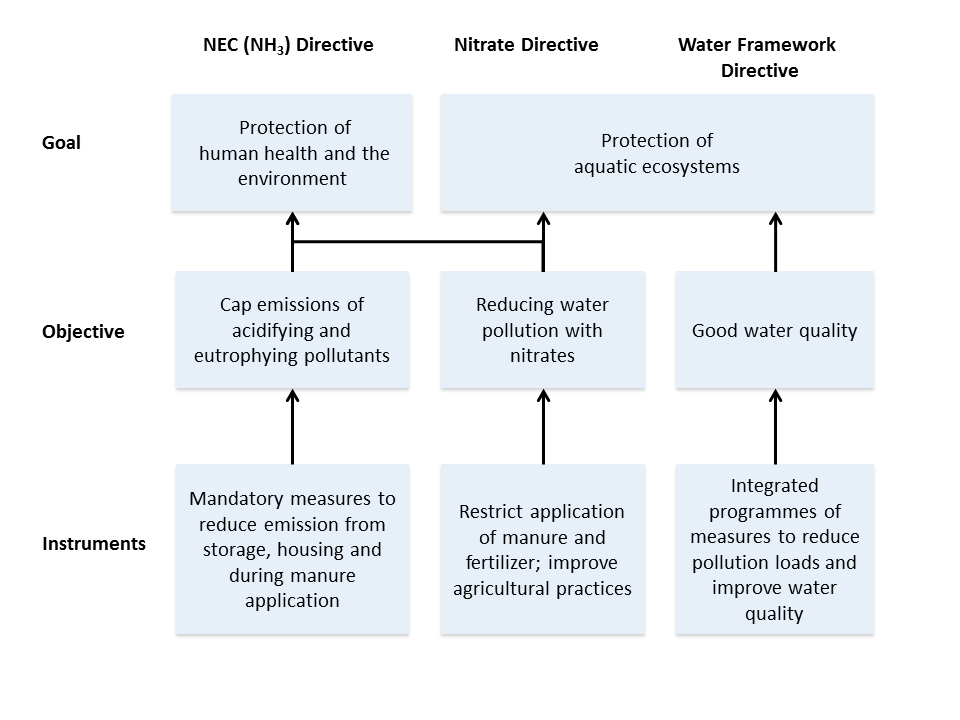Evaluation of the Dutch Implementation of the Nitrates Directive, the Water Framework Directive and the National Emission Ceilings Directive
There is a strong overlap between the general protection goals of the Nitrates Directive, the Water Framework Directive and the National Emission Ceilings Directive; however, policies to implement the three Directives are not well connected. This is one of the reasons that the targets of the three Directives will not be met on time. Better coordination of policies and measures is needed to increase effectiveness and cost efficiency.
Policies for the Directives have improved air and water quality
Dutch manure policies have decreased soil nutrient surpluses and have improved groundwater quality. However, the target of 50 mg/l is still exceeded in groundwater in half of the sand region.
Ecological quality of surface water improved slightly, but improvement was mainly due to phosphate emission reduction measures for the Water Framework Directive and not to reduced nutrient losses from agriculture. Measures for the National Emission Ceilings Directive have effectively reduced the emissions of ammonia but critical loads of nitrogen are still exceeded in the majority of ecosystems.
Nutrient policies have generated net benefits for Dutch society
The mean annual cost for nutrient related policies was approximately 0.5 billion euros. Costs were mainly for the livestock sector and consisted of administrative costs, costs for manure disposal and costs for depreciation of equipment. Annual societal benefits were estimated to be 0.9 – 3.7 billion euros and were primarily health benefits of reduced concentrations of ammonia aerosols.

Authors
Specifications
- Publication title
- Evaluation of the Dutch Implementation of the Nitrates Directive, the Water Framework Directive and the National Emission Ceilings Directive
- Publication date
- 22 March 2016
- Publication type
- Publication
- Magazine
- NJAS - Wageningen Journal of Life Sciences
- Product number
- 2370